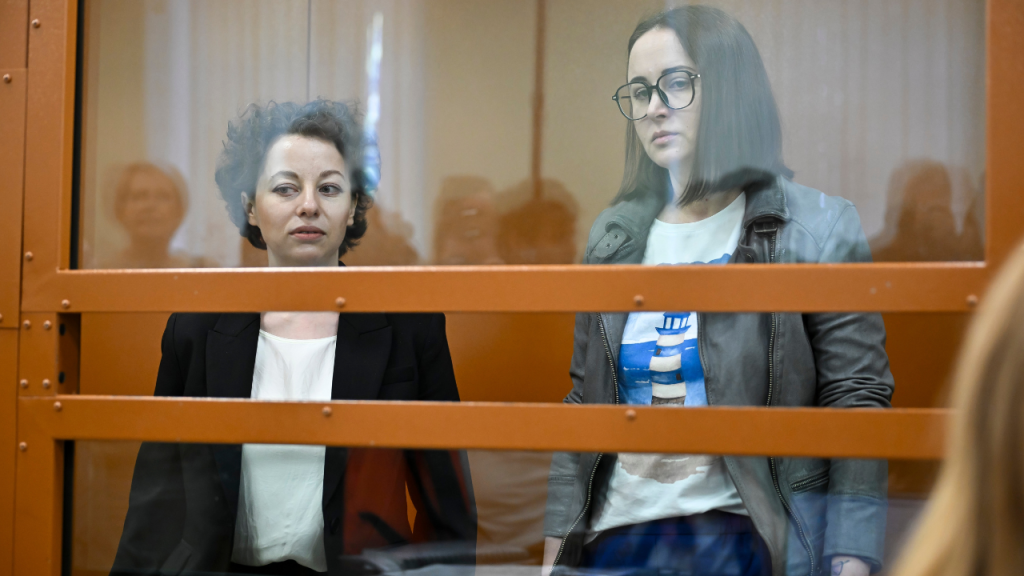Zhenya Berkovich and playwright Svetlana Petriychuk are on trial in Russia, accused of advocating terrorism through their play “Finist, the Brave Falcon.” Despite being in jail for over a year, both Berkovich and Petriychuk have consistently denied the accusations against them. The play had been awarded the Golden Mask award and received support from the Russian Culture Ministry. In court, Berkovich stated that the play was staged to prevent terrorism, and Petriychuk echoed this sentiment, explaining that she wrote it with the intention to prevent events depicted in the play.
The case against Berkovich and Petriychuk has sparked outrage in Russia, with an open letter of support initiated by the Novaya Gazeta newspaper garnering over 16,000 signatures since their arrest. The letter argues that the play contains a clear anti-terrorist sentiment. Additionally, dozens of Russian actors, directors, and journalists have signed affidavits urging the court to release the two artists from custody during the investigation and trial. However, the Russian government’s crackdown on dissent has intensified since the invasion of Ukraine, resulting in the targeting of anyone who criticizes the war, regardless of their prominence or platform.
Amidst this climate of repression, many artists in Russia have faced consequences for their opposition to the government’s actions. Some have been fired from their positions in state-run theaters, while others have been blacklisted from performing in the country. The label of “foreign agent” has also been applied to some, leading to increased government scrutiny and negative connotations. Despite these pressures, Berkovich has chosen to remain in Russia to raise her two adopted daughters and continue her work with her independent theater production, Soso’s Daughters. She was previously jailed for 11 days after staging an anti-war protest following the start of the conflict in Ukraine.
The trial of Berkovich and Petriychuk represents another instance of the Russian government’s crackdown on dissenting voices within the country. The authorities have accused the two women of advocating terrorism through their play, which is a criminal offense in Russia with a potential prison sentence of up to seven years. However, supporters argue that the play carries a message against terrorism and is a work of art that should not be criminalized. The case has highlighted the challenges faced by artists who dare to express criticism of the government and the consequences they may face as a result.
The play “Finist, the Brave Falcon” has faced increased scrutiny in the context of Russia’s current political climate, where criticism of the government and its actions is met with harsh penalties. Despite the play’s previous accolades and support from the Russian Culture Ministry, Berkovich and Petriychuk find themselves on trial for their creative work. The outcome of their case may have far-reaching implications for the freedom of expression in Russia and the ability of artists to address important social and political issues through their work. The trial underscores the challenging and increasingly dangerous environment for dissenting voices in Russia today.


